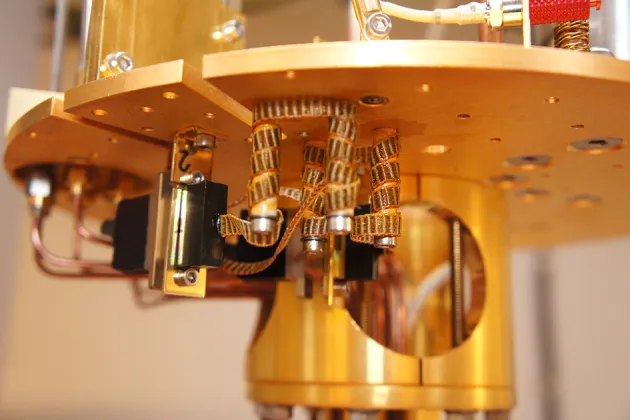This investment in clusters of excellence is part of a Government initiative jointly run by VR and Vinnova. The goal is for Sweden to have up to five world-leading clusters in strategic technology by 2035. By bringing together stakeholders across sectors and disciplines, these clusters will attract international talent, capital and investment and strengthen Sweden's position at the forefront of global technology.
“This is the largest single investment in the 2024 research and innovation bill, totalling over SEK 2.5 billion. It is therefore very important that the investment is successful for Sweden, and it is gratifying that so many researchers from LU have been involved in these calls for applications and have received planning grants,” says Per Mickwitz, pro vice-chancellor.
Eight LU networks among the 40 to receive funding from the Swedish Research Council
Of 191 applications, the Swedish Research Council has approved 40 projects, eight of which are at Lund University. Each network will receive SEK 1.2 million to produce a report on a future cluster of excellence. The University's approval rate was 27%, compared with 21% overall.
The report is to contain an analysis of the research area, a strategy for collaboration and an assessment of the technology's long-term impact on society, including national security aspects.
The applications cover many different research areas, such as medical biotechnology, electrical engineering and electronics, condensed matter physics, materials chemistry, neuroscience and nanotechnology in the life sciences.
The approved networks at the University will receive planning grants of 1.2 million to write a report that will form the basis for the next selection of clusters of excellence.
- Cell therapy based on pluripotent stem cells – Anna Falk
- Hypersonic systems for groundbreaking excellence and research exchange – Christer Fureby
- Integration of synchrotron light-based phase contrast methods and other biomedical imaging methods for future pathologies – Olof Karis
- Quantum sensing, metrology, and control – Martin Leijnse
- Adaptive soft material systems for technological innovations – Emma Sparr
- Advanced semiconductors: innovation, testing, and value chains – Lars-Erik Wernersson
- Advanced technology for life and breathing – from atom till society – Gunilla Westergren-Thorsson
- Swedish excellence cluster for spatial AI and positioning, computer vision, and learning systems – Karl Åström
The projects will run until 31 March 2026 at the latest.
Read more about the allocation of funds to future clusters of excellence for groundbreaking technology on the Swedish Research Council's website: Great interest in network grants for clusters of excellence for pioneering technology.
Vinnova invests in 45 planning projects – six from LU
Clusters of excellence are a long-term initiative in which Vinnova will invest approximately SEK 1 billion over the first four years. Vinnova has approved 45 of 173 applications. Six of these come from Lund University, which had an approval rate of 33% (compared to 26% overall). The grants are up to SEK 1.5 million per project.
Vinnova has selected projects in six strategic technology areas: Artificial Intelligence (AI) and Autonomous Systems, Advanced Digital Technology, Biotechnology, Energy Technology, Quantum Technology, and Materials and Production Technology.
The following six projects from Lund University have been awarded planning grants of up to SEK 1.5 million each:
- Advanced connectivity – drives research and innovation for future digital technologies – Fredrik Tufvesson
- Integrated development of materials, production and products – accelerated by AI and in-operando monitoring – Anders Mikkelsen
- Precision Omics Initiative Sweden (PROMISE): a data-driven transformation of Swedish biomedical research and healthcare – Paul Franks
- GaMeAT – AI-tool for gaming and media – Michael Doggett
- Automate Sweden – a value chain for sustainable robotics, from research to the production floor – Volker Krueger
- Quantum sensor technology from research and applications to market and society – Peter Samuelsson.
The projects will be completed by 31 March 2026 at the latest. Due to the large response to the call for applications and the ambitious nature of those applications, Vinnova is awarding planning grants to 45 projects instead of 30 as originally intended.
Read more: Visions for world-leading research and innovation | Vinnova.


